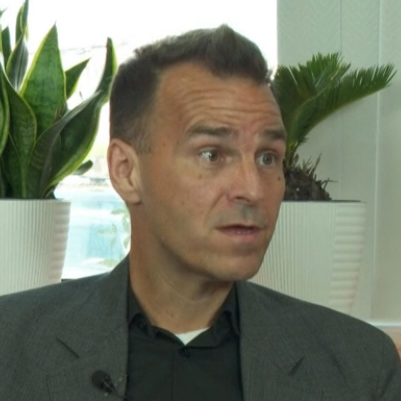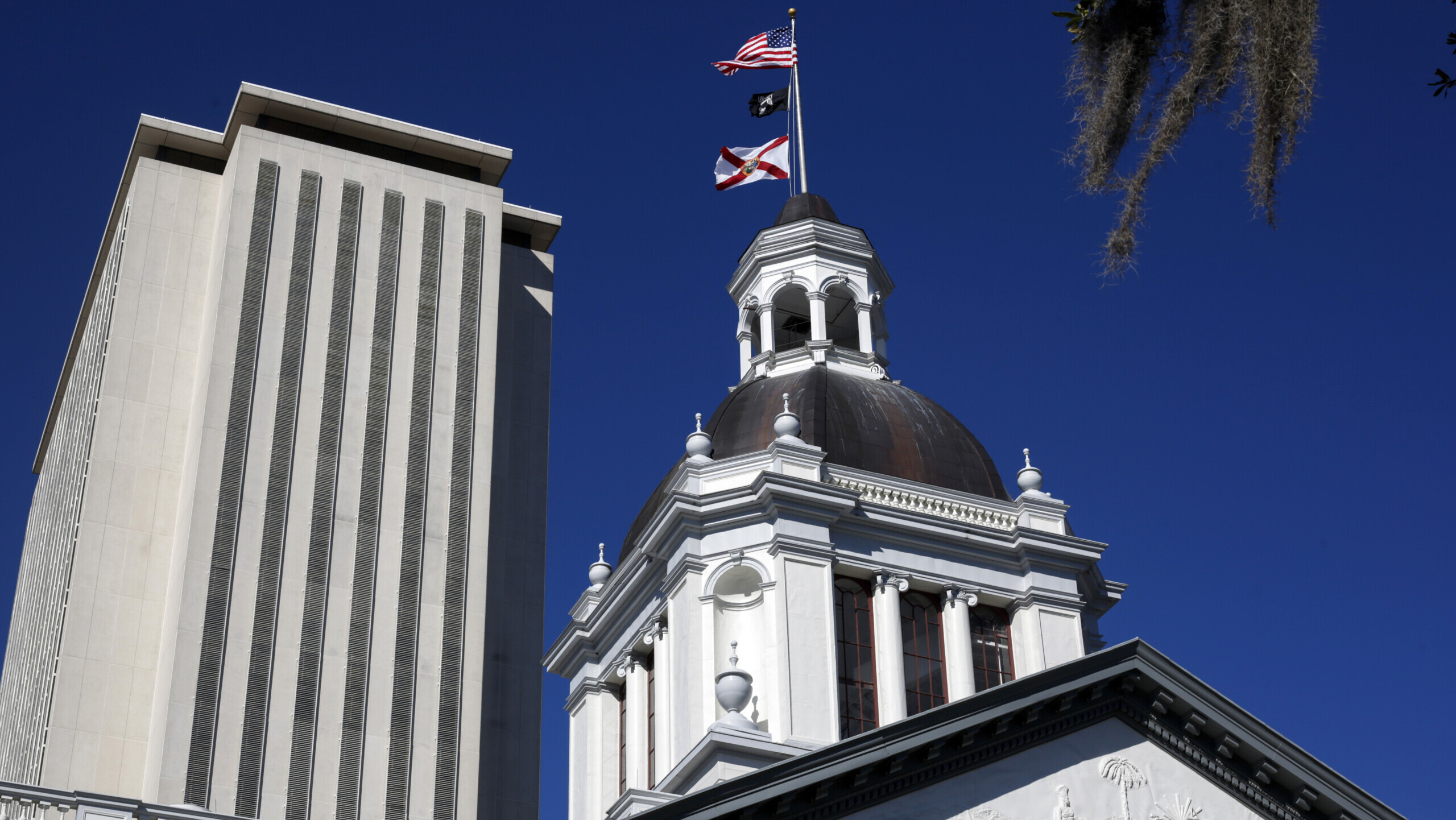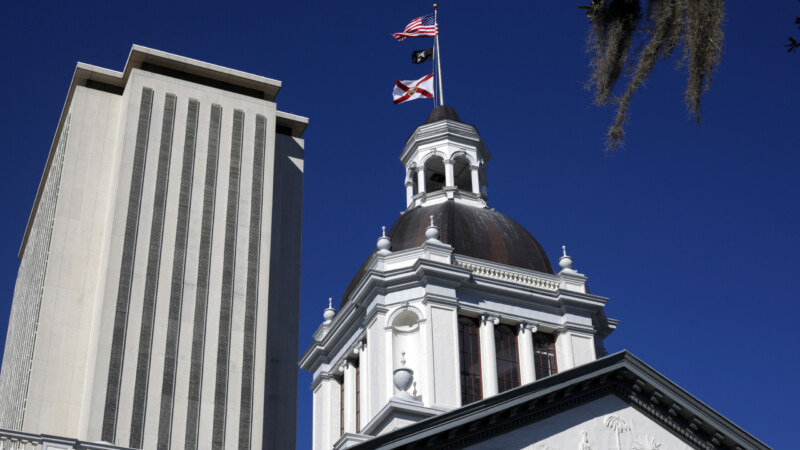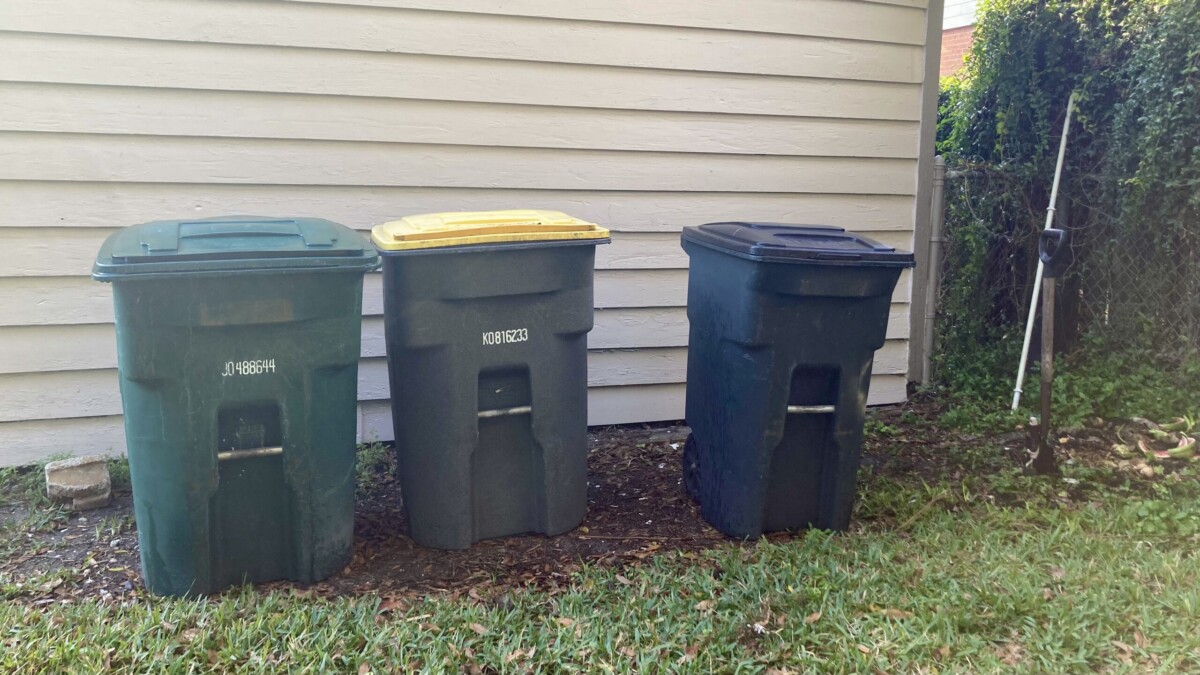
Jacksonville Mayor Donna Deegan may not have the best relationship with the City Council (see her administration’s mishandling of the Meridian Waste imbroglio that saw the legislative body kick her veto to the curb).
But when it comes to the bully pulpit and the level of theater needed to go over the heads of a GOP supermajority, the Democratic chief executive instinctively understands the strong mayor model.
To wit: her announcement last week that she is going to hold budget town halls, running from Jan. 27 at the Legends Center through March 11 at First Coast High School.
She will be in most parts of town at one point or another, and will face audiences representing what passes for our local political spectrum. She will be able to present herself as an honest broker, and constituents will be able to voice their budget priorities, offering her both real-time feedback and some talking points that jibe with the ultimate budget her administration proposes this summer.
That’s smart, long-term politics. And it certainly is a portion of the budget. Though the bigger question, one encountered last year, is that Jacksonville is already drawing down its reserves amid generational capital commitments to the Jaguars and pension promises to cops and fire. The most pessimistic read last year was that the city could face nine-figure deficits, and that’s assuming all goes well.
Meanwhile, remember this: Jacksonville is a subsidiary government.
Though we don’t necessarily think of it much, we are subordinate to the whims of Tallahassee — still dominated by Ron DeSantis, who next week will bring the supermajority-GOP Legislature to heel with a special session the leadership said they didn’t really want. And to D.C., where President Donald Trump is not aligned with the priorities or the rhetoric of this mayor and the shambling, barely ambulatory husk of the Florida Democratic Party that claims her.
Mayor Deegan closed out last week with a shoutout to now-former Transportation Secretary Pete Buttigieg and $2.8 million the city drew down just before the buzzer ran out on the Biden-Harris era, saying she was “thrilled to receive a call” from him “congratulating us on receiving” a “game-changing grant” that will fund 100 electric vehicle chargers.
It remains to be seen if the mayor will be quite so connected to Trump’s nominee, former Fox News personality and Wisconsin Congressman Sean Duffy. Or to any of the other people floated by the new administration. Do they regret cutting ties with the connected Ballard Partners now? On the bright side, Buttigieg will have more time for thrilling phone calls now. Like the old AT&T ad said, reach out and touch someone!
While some may debate how necessary 100 chargers at $28,000 each actually is, or why it is that in a city with sclerotic traffic and roads more pocked than Manuel Noriega’s face we need to encourage more car brain, a win is a win. Even if it’s a lovely parting gift from an administration that, according to polling, few Americans will mourn.
The federal budget and Jacksonville’s ability to draw down money as it did under Biden is just one piece of the puzzle, of course.
The other piece is that Tallahassee is sending messages to localities to tighten their belts.
The most vivid examples of this I’ve heard regionally were at county legislative delegation meetings, where state Sen. Tom Leek was blunt in his responses to local elected officials’ wish lists.
He told Putnam County leaders that the days of the feds’ “dumping” money on Florida are over, and that they and others should expect “substantially less” in terms of money available in the “Sprinkle List” of member-backed projects that get greased through in the tail end of legislative sessions.
Yes, Gov. DeSantis historically has made a big deal of his robust veto list. Game of Thrones fans will remember the “Red Wedding”-scale cuts of 2020, for example. But the big takeaway from Leek, who was House Appropriations Committee chair last year before running for the Senate seat formerly held by Travis Hutson, is that legislators are going to be more cautious about the stoplight and sewer projects and senior centers that they attempt to lard up the pork barrel with this year.
DeSantis, recall, spent a lot of time in recent years talking up the state’s “comfortable budget surplus.” But much of that was funded by federal COVID-19 money, and billions of dollars have been frittered away over the years on pet projects with no connection to the pandemic, like tourism marketing, migrant flights from Texas to California or Martha’s Vineyard or bonuses to first responders.
While Florida Sen. and former Gov. Rick Scott believed surplus COVID money should be returned to the federal treasury, DeSantis bucked that unfriendly recommendation.
“It doesn’t make any sense,” said DeSantis, as transcribed by POLITICO. “If Florida were to send the money back, (Treasury Secretary Janet) Yellen is going to send it to Illinois, California, New York or New Jersey. I don’t think that would make sense for Floridians — for us to be giving even more money to the blue states that (are) already getting such a big windfall in this bill.”
The rococo theater of the COVID pandemic is ancient history now, of course.
Few are masking up or dousing themselves with hand sanitizer. The major impact we feel now from it is not the fear of infection, but the long-term impacts of currency-supply expansion and dollar devaluation.
That explains why the Biden administration and its media acolytes trumpet a strong economy, but why people can’t make their paychecks stretch in 2025 like they did back in 2019. They may have gotten small raises, but the dollars are worth a lot less, and so they are leveraged out in terms of credit as real wealth shifted inexorably and irreversibly to the top tier of earners.
Fiat currency is, of course, the company scrip of the leviathan state.
But Florida has another problem that Amy Baker, who heads the Office of Economic and Demographic Research, noted: It committed itself to big spending in the last few years that will lead to deficits if uncorrected, and tough choices regardless. Medical inflation and Medicaid costs, a shaky housing market, an aging population that will be more in need of social services with each passing year, and core education costs conspire. And the end result: a projected $7 billion deficit in FY 27-28.
And that doesn’t even account for “black swan” events, like hurricanes and other natural disasters. Ask your friends in California what kinds of impacts wildfires can have.
So lawmakers are cognizant of this forecast, particularly the ones in leadership positions in budget committees.
The state last dealt with what looked to be slowing economic momentum like this just before the pandemic, ironically enough.
Back in September 2019, Baker warned of a “winded” fiscal picture, with hurricanes, an uncertain global economy, and softness in the housing market driving a “risk of a recession.”
If the pandemic hadn’t happened and if governments around the world hadn’t decided to embrace a bizarre short-lived experiment in modern monetary theory, one that ultimately shored up people with money much more than people who live check to check, we might have seen that natural economic cycle come and go.
But two consecutive presidents and congresses committed to a different way. And Florida’s politicians benefited in the short term, able to spin a narrative that offered balm to the credulous citizenry.
But now?
The game is entering a different phase. Absent more meddling in the economic cycle by the federal printing press, leaders in Washington, Tallahassee, and Jacksonville will have to find a way to sell austerity to people who already live their lives leveraged out, knowing that their standards of living are worse than their parents’ and that their political leaders sold them out for exuberant news cycles and talking points for their next gigs.
Will the mayor have the courage to deliver this message at her upcoming town halls? That’s the open question.







